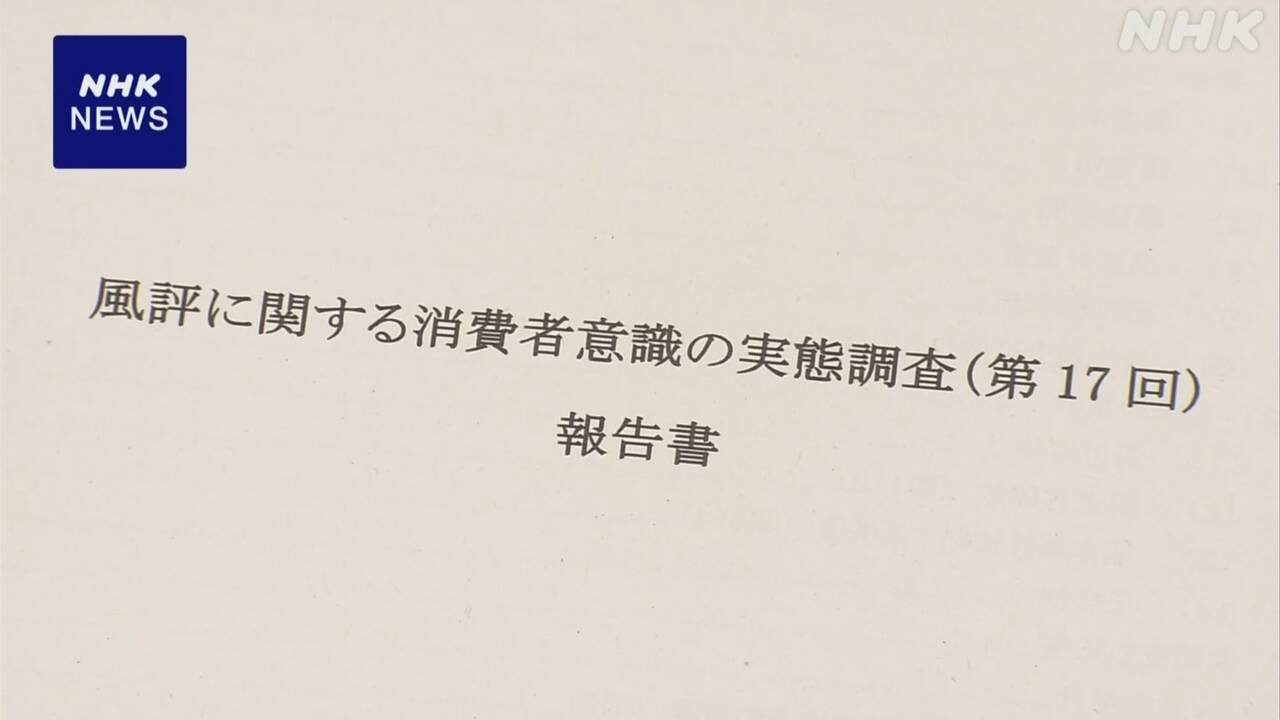Almost 13 years have passed since the accident at Tokyo Electric Power Company's Fukushima Daiichi Nuclear Power Plant, and in an annual awareness survey conducted by the Consumer Affairs Agency, 4.9% of people answered that they would be hesitant to purchase food produced in Fukushima Prefecture. This was the lowest on record, and it was found that the decreasing trend continued even after the treated water was released into the ocean.
Since two years after the Fukushima Daiichi Nuclear Power Plant accident, the Consumer Affairs Agency has been conducting a survey on people's attitudes toward food made in the disaster-stricken areas, and in January this year, the Consumer Affairs Agency surveyed food produced in Tokyo, Osaka, and the areas affected by the Great East Japan Earthquake. An online survey was conducted of 5,176 people in their 20s to 60s living in 11 prefectures.
Among them, the percentage of people who answered, "I hesitate to purchase food produced in Fukushima Prefecture because of radioactive materials" was the lowest ever at 4.9%, which is 0.9 points lower than last year's survey.
In addition, the percentage of people who answered ``I want to buy food that does not contain radioactive materials'' as a reason to be concerned about the origin of food when shopping on a daily basis was 9.3%, which was also the lowest on record.
This was the first investigation since the discharge of treated water from the Fukushima Daiichi Nuclear Power Plant into the ocean began, and Consumer Affairs Agency Commissioner Yutaka Arai said, ``As far as we can see from the data, the negative impact of harmful rumors caused by the release of treated water into the ocean is limited domestically.'' We accept that this has not occurred. We will not rest in peace with the results and will continue our efforts to ensure the safety and security of our food products."

